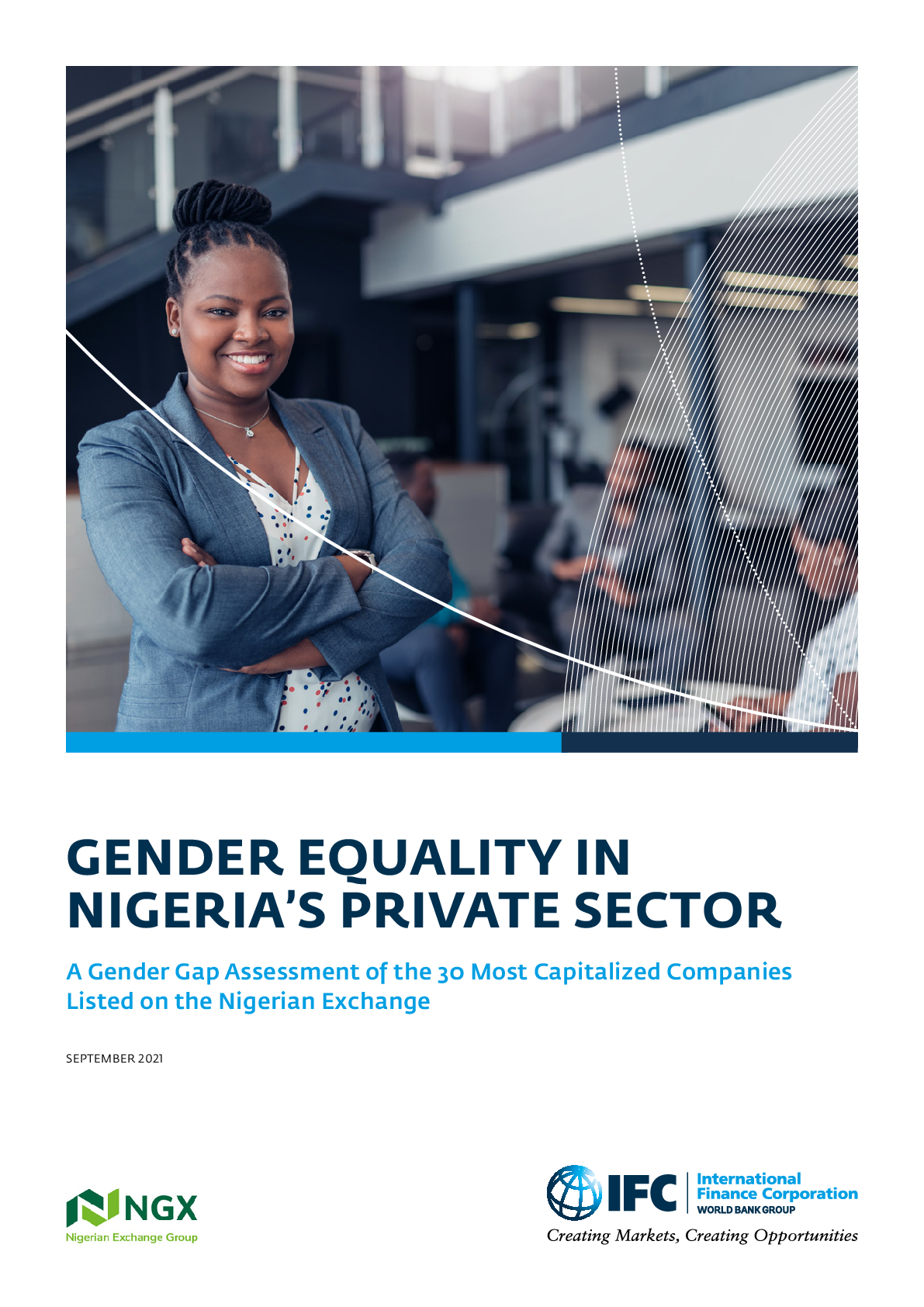
The study aimed to deepen market specific data on the evidence for the business case and show emerging best practices, or challenges, for closing gender gaps in Nigeria’s private sector. It also spotlights private sector companies leading the way in gender equality performance and underscores priority issues that promote or hinder women’s participation as leaders, employees, and entrepreneurs.
The findings set the context for IFC’s Nigeria2Equal Peer Learning Platform, which brings together leading companies to make specific, measurable, and time-bound commitments to increase women’s participation in Nigeria’s private sector by 2023.
This report explores the state of gender equality in Nigeria’s private sector. It helps take stock of progress and has identified areas that need attention, not only by the 30 companies assessed, but also by the broader corporate community as well as policymakers, civil society organizations and investors looking to add a gender-lens to their investment processes while adding value to listed companies.
We hope that it inspires Nigeria’s private sector to identify priority areas for attention—and commit to closing gender gaps.
